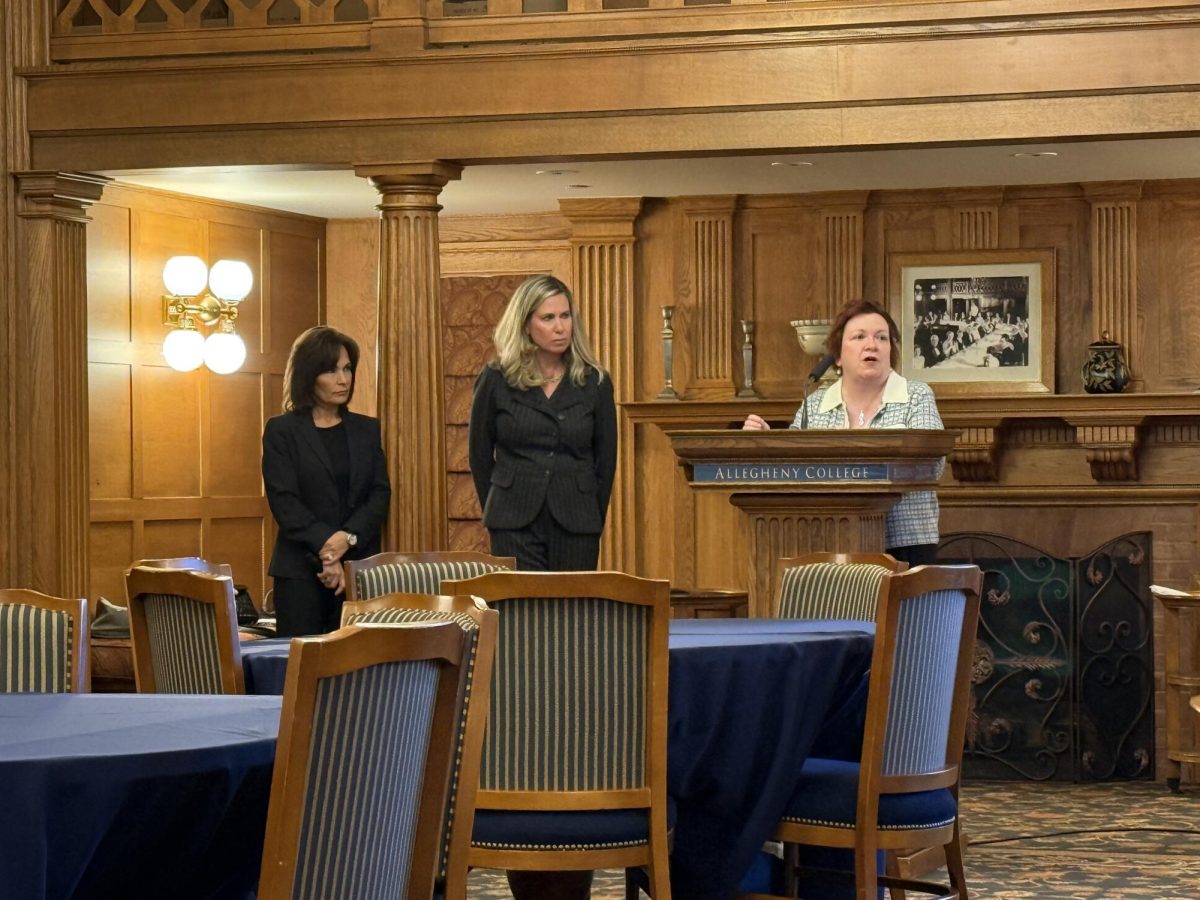By ROBERT LITZ
Contributing Writer
After Alleghenians are handed their diplomas, some pursue careers in medicine, others study law, but few travel hundreds of miles to put their own life in danger for something they believe in. During the Freedom Summer of 1964, Allegheny graduate Rick Momeyer who graduated in the same year did just that. Last Tuesday, Momeyer returned to his alma mater to tell his story as part of the Year of Civil Rights.
Standing in front of a packed audience in Ford Chapel, Momeyer remembered when he was a student seated in one of the pews, listening to Bayard Rustin, a prominent civil rights activist. Rustin, who came to speak about the movement, floored young Momeyer when he shot an unexpected question at the audience: “How come ya’ll decided to come to a segregated college?”
Rustin’s words unlocked in Momeyer an awareness of personal conduct in an intricate world infested with discrimination and disenfranchisement. As civil rights activism swept across the United States, Momeyer was shaken out of the comfort zone of on-campus life and stirred into action. Impassioned, he founded College and University Anti-Segregation Effort (CAUSE). The group’s mission was threefold: to understand the African-American situation and their personal role in it; to create at Allegheny an environment that will attract African-American students on an equal basis; and recruit individuals of color. However, CAUSE only scratched the surface of Momeyer’s involvement; he wanted more.
In 1962, Momeyer took advantage of an opportunity to insert himself in the movement through Fisk University. Fisk, a participant of the Nashville sit-ins, swapped three of their own for a trio Alleghenians as part of a student-exchange program. Rather than spending the typical semester in Meadville, Momeyer was bound for the civil rights battlegrounds of Tennessee, not knowing what to expect.
“He took action, playing a part in organizing one of the most important events of the Civil Rights Era in order to eradicate the last vestiges of segregation in the South,” said Professor of Political Science and Director of the Center for Political Participation Brian Harward.
“If you were 19 years old and had any social conscience, this is where you wanted to be,” Momeyer said.
Momeyer attended mandatory non-violence workshops at Fisk led by Jim Lawson, a non-violence tactician who advocated passive resistance to transform the enemy. Now enmeshed within the movement, it was vital that Momeyer and his peers knew how to protect themselves in case of assault. In Nashville, the danger was real, and Momeyer was soon put to the test.
Lawson was ready to deploy his students into the field and instructed the group on their first non-violence mission. But with this assignment, the target was different. Lawson identified the Cross Keys, a luxury restaurant where whites were the only welcome customers at the time. Momeyer and two of his friends awaited the arrival of their party’s other three members whom they arranged to meet for lunch. As soon as Momeyer’s remaining friends arrived and sat down, every one of their water glasses and place settings were whisked away “the fastest you have ever seen a table cleared.” Moments later, all five were in handcuffs. The three friends who had joined them were black.
Momeyer and his companions were charged on three counts. They were delighted by the indictment – this attention was their chance to make a difference. However, Allegheny students had mixed reactions to Momeyer’s situation in Nashville after he published a controversial article in The Campus detailing his experience. Some condemned him as having disgraced the school, while he was lauded by others for having done something admirable. Despite the backlash, the greater good prevailed.
Facing a grand jury, Momeyer’s commitment to racial and social equality did not waver. Slews of supporters stood behind Momeyer and his conviction that justice sees no color led him to raise $360 to contribute to the fight for civil rights, a sum he handed to Martin Luther King himself.
Though the legal superstructure of segregation was dismantled, Momeyer reminded students that we have still not yet achieved a post-racial society. Drawing from the wisdom of Booker T. Washington, Momeyer suggested to “cast down your bucket where you are.” If you hear injustice, do not remain silent.

Rick Momeyer ‘64 gave a lecture about his activism in the civil rights movement, as part of Allegheny’s Year of Civil Rights in Ford Chapel on Oct. 8, 2013.

The audience for Momeyer’s lecture filled Ford Chapel’s main floor and balcony on Oct. 8, 2013.







Allegheny Alumna • Oct 21, 2013 at 12:45 pm
Thanks for sharing this article about Rick Momeyer’s great speech! Your article was well-written and inspiring. But please — the article’s title refers to Rick as an “Alumni Rights Activist” (?!?). I think Rick is actually a civil rights activist, rather than an activist for “alumni rights” (whatever those are ….).
P.S. An individual male graduate is an “alumnus” — alumni is a plural term.